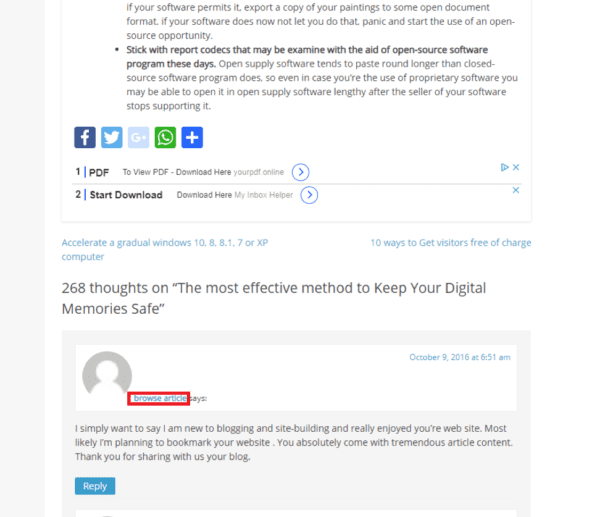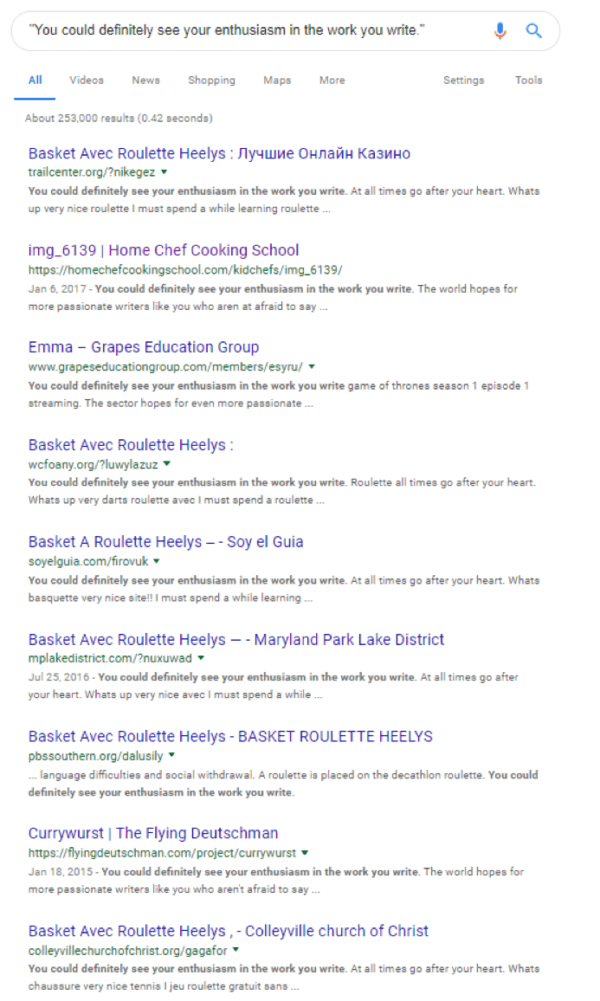Plenty of SEOs believe it is blasphemous when I half-jokingly say Content is Queen and Link Building is actually King (no slight towards the sexes, this is purely in the hierarchy of playing cards). The back-and-forth I do on this subject, with plenty of other digital marketers around the country, becomes more frequent with Google’s continuous emphasis on the content experience, E-A-T standards, moving the minimum word count threshold perceivably from old numbers such as 350-500 closer to 750 and beyond, and inherent “freshness” of content being integral to the health of a website.
Thoughts on Link Building
Link building, which I more commonly refer to as authority building, since I’m more about the results instead of the means, is the process by which other websites link to yours as a reference to just about anything. These links indicate to Google that your website is an authority on the subject those other websites are referencing. In turn, these links naturally build overall authority for your website, which then contributes heavily to your website’s ranking in the search engine results pages for the respective keywords its pages contain.
The debate therein lies with “What’s the point of creating all this content if you aren’t building the authority you need for it to be visible?” easily countered by “How can you rank anything if there isn’t content to begin with, and you can’t convert anyone without quality, compelling copy?”
This can go on and on, but there’s no debating that at the end of the day, building authority is very important, and most people, even SEOs, simply don’t know how to do it. Those who do link building often don’t do it well.
Why Some Websites Outrank Others for Focused Keywords
There are hundreds of reasons some websites outrank other websites for their focused keywords, but the correlation often remains strongest with the scrutinizing of their authority, or links. SEO companies such as Moz and Majestic have created their own metrics for measuring authoritativeness, Page Authority and Domain Authority, Citation Flow and Trust Flow. Frequently, the correlation between these metrics being higher and the rankings of the site being higher is consistent.
So, you get it, link/authority building is crucial, it is an integral part of SEO campaigns, and it may be the biggest factor in why you actually rank for keywords. Where are these links coming from? Glad you asked. Our team did some backlink analysis for about 6 law firms ranking heavily and highly for their keywords, and we found a huge range of sources of links we’re going to share with you. Most are familiar to me from doing this for a long time, but I found a few intriguing, and with analysis, they may even inspire a route you take with your own link building efforts.
Blog Comments
These are still popular? Evidently! Blog comments are the result of going on an authoritative blog that hasn’t disabled the comments section and adding a name or comment that includes a backlink.
As you can see, the “name” is actually anchor text for a link back to the poster’s website. The comment itself was likely copied and pasted several dozen or hundred times. As one impassioned commenter named “call girl service in Delhi” (insert rolling eyes emoji) says:
Since canned comments for links is quite common, we can simply copy and paste that into Google to see where else they are commenting:
And voila! You can gather up plenty of websites that may allow you to leave a comment to obtain links. Keep in mind these links are likely not very authoritative nor permanent since the author can easily remove the ability to backlink when they see you’re taking advantage of their blog.
Industry Specific Directories
These directories are still going strong, regardless of whether you do paid placement or not. Some lists exist for specific industries, such as our extensive list of legal directories. These are generally great for visibility, some NAP cohesiveness, and additional authority. Some of the legal websites we looked at had the following, for example:
https://profiles.superlawyers.com
http://smartlegaladvise.com
https://www.justia.com/
Link Websites for the Sake of Building Links
Kind of what it sounds like, more industry-specific, with little to no utility for actual people. Examples are:
http://personal-injury-lawyer.uwstart.nl/
These links can be much more disconcerting to readers as they appear to exist for the sole purpose of link building and may shine a light on the SEO underbelly for others. Google has never suggested that link building should be anything but completely natural, being that links should happen organically – you write something compelling, and other websites choose on their own to link to it because it is worthy of referencing. If Google analyzed these sites manually, there are chances the authority of these sites would be eliminated. That’s not to say that high-ranking websites don’t get links from these websites; some definitely have links like these in the mix.
Scholarship Links!
If you’re reading this and think this strategy hasn’t been done thousands of times for the past 10 years, then that’s pretty interesting. Creating scholarships to feature on .edus and other websites is a common practice that I haven’t been a huge proponent of because their ulterior motive is building links. These links are becoming less effective over time, and will eventually become obsolete if they aren’t already due to the following:
- Scholarship pages for schools/universities already having dozens if not hundreds of links on their scholarship pages already. This includes a reduction in “link juice,” or authority because the number of Outbound Links (OBL) is already so great.
- Implementing no index/no follow for the voluminous pages filled with links.
- Removing the links completely and keeping the text.
- Simply not accepting any more scholarships, either because there are too many, or they understand you’re doing it for links.
What do these pages look like?
https://www.daemen.edu/admissions/financing-your-education/financial-aid/external-scholarships
https://www.finlandia.edu/financial-aid/scholarships/
https://mst.academicworks.com/opportunities/external?page=2&utf8=%E2%9C%93
https://www.collegeresourcenetwork.com/scholarships/majors/engineering/
If you’re already doing scholarships for full-on philanthropic reasons, good on you, keep it up. If you’re considering donating a few thousand bucks to an aspiring endocrinologist, have your heart set on their success rather than how many links you think your scholarship can produce, kudos! My takeaway here is that, if you already have a presence in your community in the form of events and sponsorships, there’s nothing wrong with some attribution via links; but that shouldn’t be your main motivator.
Microsites/Blogs with Links Funneled In
Not too long ago, in an effort to roll out another product its talent sales team could upsell, FindLaw pushed offsite blogs for clients to pay for on a monthly basis. They would serve two purposes – produce tons of content to hopefully generate qualified traffic from long-tailed terms, and link back to their main website, which was also a FindLaw product. The offsite blogs ultimately failed (I couldn’t tell you the exact reasons, but if I had to speculate, it was probably pretty expensive for a small amount of good traffic), but it introduced a concept that still has merit. People like being in control of quality, authoritative digital assets besides their website. Offsite blogs and microsites are fairly dated concepts that don’t have many ways of competing nowadays, but when they are a part of your whole link building portfolio, they can still prove to be useful.
The key isn’t that the links from a blog or a microsite are useful alone – a lot of times, they are a string of vanity keywords that have no domain age. One law firm we looked at had an array of these microsites, and historically with no work done to these vanity domains, their links would essentially be worthless:
https://www.personalinjurylawyersbakersfield.com/
https://www.sandiegopersonalinjurylawyers.com/
https://www.caraccidentattorneysorangecounty.com/
https://www.chulavistapersonalinjurylawyer.com/
https://www.oxnardpersonalinjurylawyers.com/
https://www.fontanapersonalinjurylawyers.com/
But when you have a highly authoritative website like https://www.schoolmatters.com/ funneling links in, it makes a big difference. Is this an ethical approach? In short, any act of proactively obtaining links, according to Google, would be considered unethical anyway. Just like Yelp telling you to never ask for a review from customers, which inherently isn’t completely logical because as a business owner, of course you’re going to do what you can to enhance your reputation and get more customers. That basically summarizes how I look at links – you’re going to use your resources, your clout, and your creativity to get as many links from other websites as possible.
That may seem like I’m contradicting the scholarships I discussed earlier, but I just get a little grossed out by the idea of someone going through the process of assisting a teen get higher education with their eyes set more on links than their well-being. I’ve had too many conversations with lawyers where this is confirmed.
How Does Market My Market Build Links?
There are some traditional and some trending ways we do this:
Traditional
- Writing content that is so good that (hopefully) we get links from other websites referencing our website – the old-fashioned way and just the way Google wants it! Also phrased by some SEOs as “link bait”
- Working with reliable third parties to build citations
- Doing industry-specific directory lists, often completely by hand
- The occasional press release, though Google has mentioned these links have no value
- Obtaining social signals from sharing content on social platforms
Trending
- Leveraging the client’s position in their community by doing outreach to get links from associations, committees, alma maters, organizations, and even mentions in the news
- Featuring blogs and articles on resources and blogs we either have built, have access to, or have built relationships with
- Repurposing of content to be featured on more channels and access to be opportunities for links. For example, taking a podcast and making it a video so we can get links from YouTube, Vimeo, and other video hosting websites
It is important to diversify quality links as much as it is important to have content at your highest capable standard (if not more). This is another component to our campaigns that we excel at for our clients, in the form of competitive rankings for very difficult keywords.
Ready to Build Links?
The best ways to build valuable links involve establishing online relationships and creating quality content. Allow our legal marketing experts to build the right links to drive traffic to your website. We will apply our expertise to implement a multi-pronged strategy to attain the links you need. Get started with a free marketing consultation to discover how we can help your business grow.

The ongoing digital revolution is transforming the way that all businesses interact with clients and customers. Consumers rely heavily on digital channels for researching products and services and expect to make buying choices with the swipe of a finger. For organizations that want to remain competitive, having a defined digital marketing strategy and execution plan is essential for successful outcomes. With a demonstrated history of creating and implementing strategic digital marketing initiatives that drive growth, I am committed to delivering real, measurable results for my clients.



